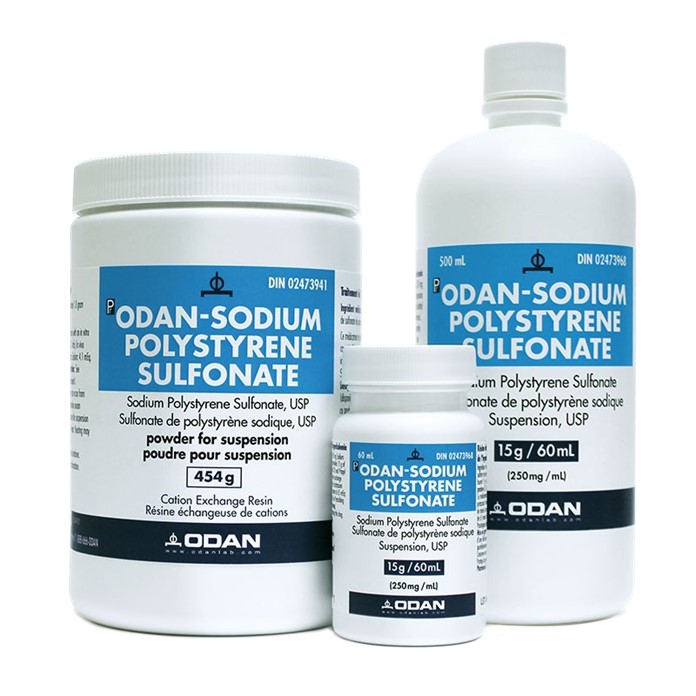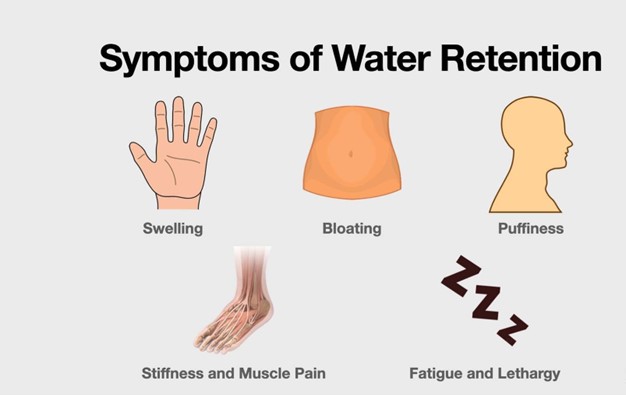A patient is admited with hypernatremia caused by being stranded on a boat in the Atlantic Ocean for two days without water. What is the patient at risk for developing?
Cerebral bleeding
Pulmonary edema
Cardiac arrhythmias
Seizures
The Correct Answer is C
Choice A: Cerebral bleeding is incorrect because it is not a common complication of hypernatremia, which is a high sodium level in the blood. Cerebral bleeding can be caused by conditions such as head trauma, stroke, or aneurysm.
Choice B: Pulmonary edema is incorrect because it is a condition where fluid accumulates in the lungs, causing shortness of breath, coughing, and wheezing. Pulmonary edema can be caused by conditions such as heart failure, kidney failure, or lung injury.
Choice C: Cardiac arrhythmias is correct because it is a condition where the heart beats irregularly, too fast, or too slow. Cardiac arrhythmias can be caused by hypernatremia, which can affect the electrical activity and contractility of the heart muscle. Hypernatremia can also cause dehydration, hypovolemia, and hypotension, which can impair the blood flow and oxygen delivery to the heart.
Choice D: Seizures is incorrect because it is a condition where abnormal electrical activity in the brain causes convulsions, loss of consciousness, or altered behavior. Seizures can be caused by conditions such as epilepsy, brain tumor, or infection.

Nursing Test Bank
Naxlex Comprehensive Predictor Exams
Related Questions
Correct Answer is A
Explanation
Choice A Reason: This is correct because sodium polystyrene sulfonate is a medication that binds to potassium in the gastrointestinal tract and removes it from the body through feces. Sodium polystyrene sulfonate is used to treat hyperkalemia, which is a high level of potassium in the blood. A serum potassium of 6.2 mEq/L indicates hyperkalemia, which can cause muscle weakness, cardiac arrhythmias, and cardiac arrest. The nurse should monitor the client's vital signs, electrocardiogram, and serum potassium level, and administer sodium polystyrene sulfonate as ordered.
Choice B Reason: This is incorrect because a potassium-sparing diuretic is a medication that prevents the loss of potassium in the urine and increases the excretion of sodium and water. A potassium-sparing diuretic is used to treat hypokalemia, which is a low level of potassium in the blood, not hyperkalemia. A potassium-sparing diuretic would worsen the client's condition by raising their serum potassium level even higher.
Choice C Reason: This is incorrect because initiating an IV potassium infusion is a dangerous and contraindicated intervention for a client who has hyperkalemia. IV potassium infusion is used to treat hypokalemia, not hyperkalemia. IV potassium infusion would increase the client's serum potassium level rapidly and put them at risk of fatal cardiac arrhythmias and cardiac arrest.
Choice D Reason: This is incorrect because encouraging the client to eat bananas is an inappropriate and harmful intervention for a client who has hyperkalemia. Bananas are a rich source of potassium, which is a mineral that is essential for nerve and muscle function, but can be toxic in excess. Bananas contain about 422 mg of potassium per medium-sized fruit, which is about 10% of the daily requirement for adults. The nurse should advise the client to avoid foods high in potassium, such as bananas, avocados, potatoes, tomatoes, and oranges.

Correct Answer is B
Explanation
Choice A: Sodium level is not a reliable measure of fluid retention because it can be affected by other factors such as diet, medication, and dehydration. Sodium level does not reflect the amount of water in the body.
Choice B: Daily weight is the most reliable measure of fluid retention because it reflects the changes in total body water. A weight gain of more than 0.5 kg (1 lb) in a day or 1.5 kg (3 lb) in a week indicates fluid retention.
Choice C: Intake and output is not a reliable measure of fluid retention because it does not account for insensible losses such as sweating, breathing, and fever. Intake and output can also be inaccurate due to measurement errors or incomplete records.
Choice D: Tissue turgor is not a reliable measure of fluid retention because it can be influenced by age, skin elasticity, and hydration status. Tissue turgor does not indicate the amount of fluid in the intravascular space.

Whether you are a student looking to ace your exams or a practicing nurse seeking to enhance your expertise , our nursing education contents will empower you with the confidence and competence to make a difference in the lives of patients and become a respected leader in the healthcare field.
Visit Naxlex, invest in your future and unlock endless possibilities with our unparalleled nursing education contents today
Report Wrong Answer on the Current Question
Do you disagree with the answer? If yes, what is your expected answer? Explain.
Kindly be descriptive with the issue you are facing.
